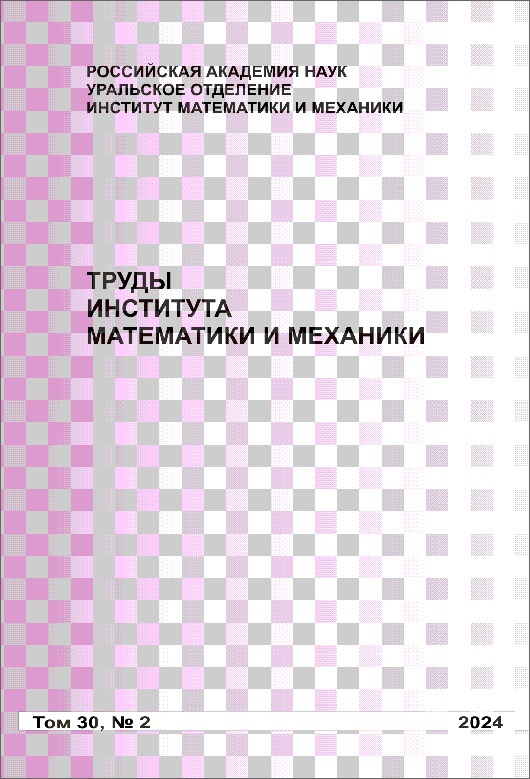|
This article is cited in 1 scientific paper (total in 1 paper)
On the exponents of commutators from P. Hall's collection formula
V. M. Leontiev
Institute of Mathematics and Computer Science, Siberian Federal University, Krasnoyarsk
Abstract:
Let $G$ be a group, and let $x,y \in G$. We find an explicit form of the exponents of some commutators from P. Hall's collection formula for the expression $(xy)^n$, $n \in \mathbb{N}$. The exponents for the series of commutators $[y,\!\!\ _ux,\!\!\ _vy]$ and $[[y,\!\!\ _ux],[y,\!\!\ _vx]]$ are found in the Hall form, i.e., in the form of integer-valued polynomials in $n$ with zero constant term, and also modulo $n$ when $n$ is a prime number. The exponents for the series of commutators $[[y,\!\!\ _{u}x,\!\!\ _{v}y],\!\!\ _{t_{1}}[y,\!\!\ _{u_1}x,\!\!\ _{v_1}y], \ldots,\!\!\ _{t_{h}}[y,\!\!\ _{u_h}x,\!\!\ _{v_h}y]]$ are found in the form of multiple combinatorial sums. As a consequence, we obtain an explicit form of Hall's collection formula in two cases: the group $G$ has solvability length 2, the commutator subgroup $G'$ has nilpotency class 2, and $y \in C_G(G')$. A collection formula for the expression $(xy)^n$ is obtained in an explicit form when the group $G$ has solvability length 3. To obtain these results we parameterize the uncollected part of the collection formula by the binary weight function. The results may be useful in solving problems in combinatorial group theory and in studying the regularity of finite $p$-groups.
Keywords:
collection process, collection formula, commutator.
Received: 16.09.2021
Revised: 22.11.2021
Accepted: 29.11.2021
Citation:
V. M. Leontiev, “On the exponents of commutators from P. Hall's collection formula”, Trudy Inst. Mat. i Mekh. UrO RAN, 28, no. 1, 2022, 182–198
Linking options:
https://www.mathnet.ru/eng/timm1890 https://www.mathnet.ru/eng/timm/v28/i1/p182
|

|




 Contact us:
Contact us: Terms of Use
Terms of Use
 Registration to the website
Registration to the website Logotypes
Logotypes








 Citation in format
Citation in format 
